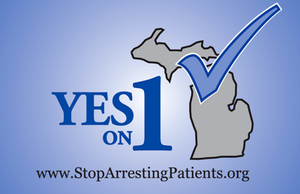Chuckleberry
Member
http://www.michigan-sportsman.com/forum/showthread.php?t=250837
Dont forget to spread the word, VOTE YES ON PROPOSAL 1
Some of the anti's dont make any sense to me at all, they appear to be brainwashed.

Dont forget to spread the word, VOTE YES ON PROPOSAL 1
Some of the anti's dont make any sense to me at all, they appear to be brainwashed.



 I wish we were voting tomorrow. If this passes it's going to be a Godsend for me, and a lot of other people. I've still been telling everyone I possibly can to vote yes for it, and so far not one person I have talked to is voting no on it. A couple of them have already voted using absentee ballots and voted yes for it.
I wish we were voting tomorrow. If this passes it's going to be a Godsend for me, and a lot of other people. I've still been telling everyone I possibly can to vote yes for it, and so far not one person I have talked to is voting no on it. A couple of them have already voted using absentee ballots and voted yes for it. Are they going to start selling Oxycontin and morphine out of vending machines too then? Just because those are legal medicines? Get real... Must be there'd be less crime, and less theft if they made Oxycontin and morphine illegal then too right? What an idiot.
Are they going to start selling Oxycontin and morphine out of vending machines too then? Just because those are legal medicines? Get real... Must be there'd be less crime, and less theft if they made Oxycontin and morphine illegal then too right? What an idiot.
